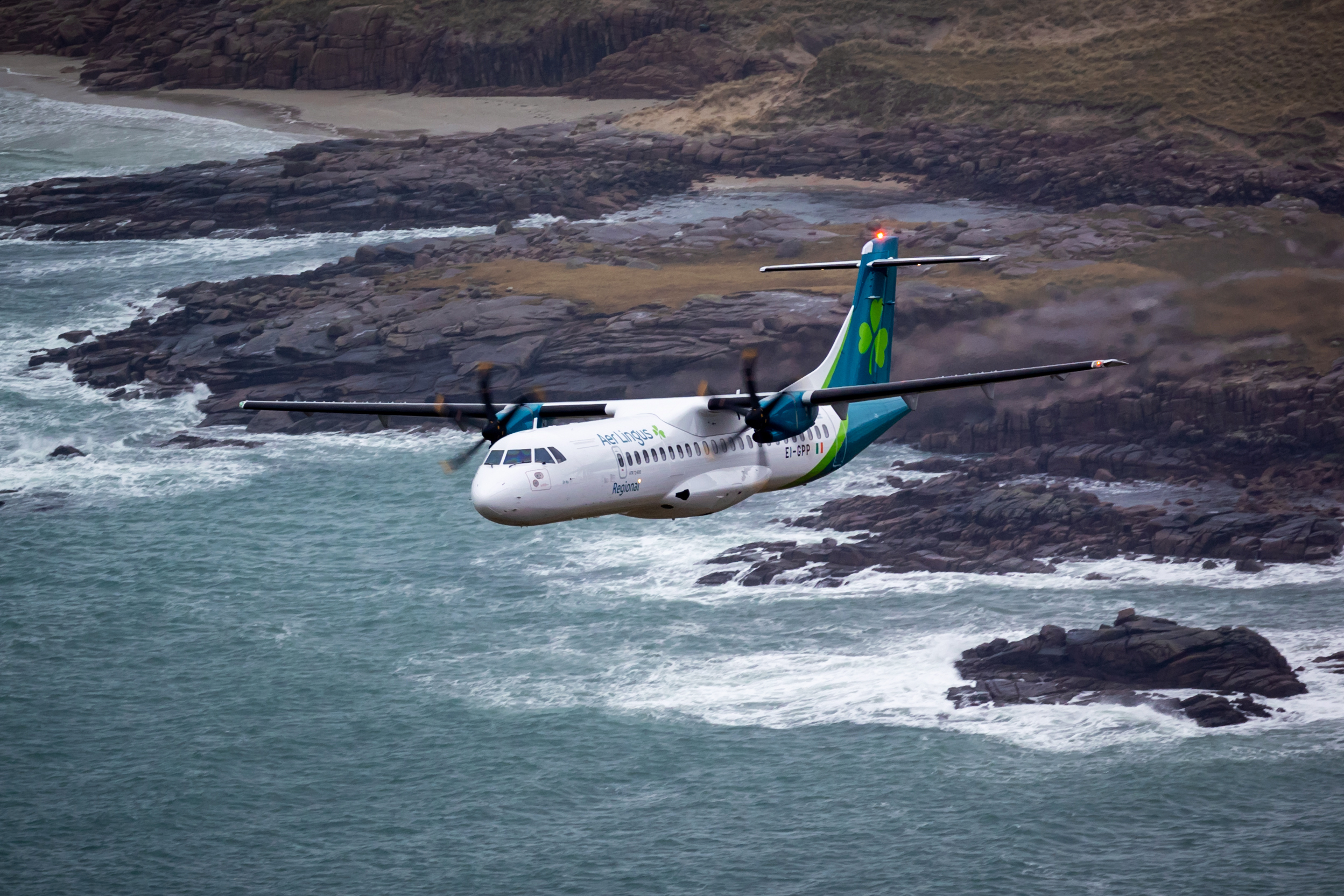Same day travel between the UK and Ireland is still down compared to pre-COVID levels, said executive chairman of Emerald Airlines – the operator of Aer Lingus’ regional arm – Conor McCarthy.
Speaking at an Aviation Club Lunch event in Dublin, in conjunction with Airline Economics’ Growth Frontiers Dublin 2025 conference, McCarthy said: “While the Irish and UK travel markets have recovered very well from COVID and are right back to where they were, the same day travel market still lags behind a lot.”
The same day travel market is a critical market for Emerald Airlines.
“Same day travel between Ireland and the UK was down 80% in 2022,” McCarthy said. Emerald Airlines launched its regional operations for Aer Lingus in early 2022. “It's still down 40% now,” he said. “Same day travel, next day travel is your high value, high yield customer base. If that's down 40%, it has a big impact on your bottom line and is much more pronounced damage if it was just 40% across the board.”
The impact of the pandemic is likely lingering, leaving the same day travel market in a more significantly challenging position.
“If you’re going to meet a colleague from a London or Manchester office from Dublin,” explained McCarthy, “there’s less willingness from companies to pay for that trip when you can just hop on an online video call. But ultimately, we have to get together and that’s why the airline business has been a success.”
Furthermore, with the airline being an ATR operator, the company has faced significant challenges in this supply chain constraint environment.
“We had an ATR on the ground from January 15, 2024, until September 30, 2024, because we were waiting for a nose landing gear,” said McCarthy. “We had to pay the lessor its lease rates. The lease company got zero reserves and at the same time, we had zero output from that aircraft because the market couldn’t produce a nose landing gear.”
Independent MRO company based at Dublin Airport, Dublin Aerospace, was awarded a license to overhaul Emerald Airlines’ landing gears and is expected to start overhauling its landing gears from a month’s time, he said.
“The supply chain is still a real challenge,” he continued. “Engine maintenance costs have gone through the roof despite the engine technology we are using is about 35 years old.
“The supply chain issues we face on the turboprop regional aircraft side is much worse than any other aircraft type and it’s a real problem. It is probably somewhat driven by the low production rates of ATR aircraft. When the phone rings, if it’s Airbus or Boeing on the line, you want to pick it up and sort it. But if it’s ATR calling – say Safran for landing gears – they may be less keen to pick up the phone and respond because they’ve got bigger issues. This is a real challenge for us.”
An additional challenge for the airline, McCarthy said is the “horrible” EU 261 rule – the European Union regulation that allows passengers to file for compensation in the event of delays or cancellations. McCarthy said the airline’s on time performance (OTP) has improved, adding that Emerald would have been third in Europe for OTP in a Cirium survey but were not included in the survey due to the airline’s size.
“It was the biggest single shock I got when I came back to try run an airline in Europe was this EU 261 and passenger disruption costs,” said McCarthy. “It's become probably our fourth largest cost line, and it's prohibitively expensive. If you imagine our average fare is around €50 to €60; if your flight is delayed more than three hours and it's non-excusable, well, you're into €250 expense.”
The US Department of Transportation (DOT) proposed a rule in a similar vein in December last year, the Air Passenger Rights, which would require cash compensation for flight delays. Already, at the start of the year, JetBlue were fined $2 million by the DOT for operating “chronically delayed flights”.
McCarthy said EU 261 is a “blunt instrument” that is “not particularly relevant for an awful lot of the kind of compensation we should pay”. He added: “It costs a phenomenal amount of money to the airlines without being a particular benefit to the customer.” He added that airlines are spending a lot of their time and resources to fend off against EU 261 expenses.
Despite these challenges, McCarthy said the company “finished 2024 with our first profit”. He said Emerald’s hub in Dublin provided key advantages, with customers wishing to avoid the congestion in hubs such as Heathrow, along with the US pre-clearance in Dublin, and also the hub providing a more cost-effective option for consumers.
Looking ahead, the company will operate a fleet of 20 ATR 72-600 aircraft in summer, up from it currently operating a fleet of 18 ATR 72s, after securing two more slots in Dublin.

